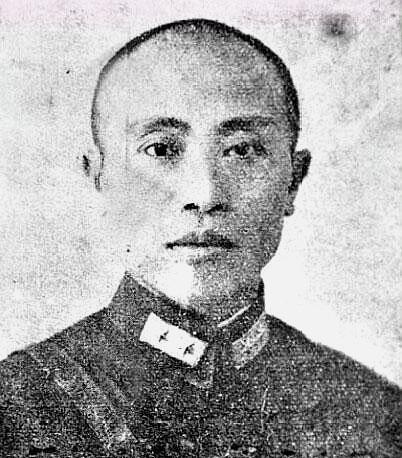Li Jiayu was the commander-in-chief of the Chinese Army Group, who died after General Zhang Zizhong in the War of Resistance Against Japan.
On May 21, 1944, Lieutenant General Li Jiayu, commander-in-chief of the Chinese 36th Army, led his troops to prepare to block the Japanese army, but was ambushed by Japanese cavalry. Officers and men clashed left and right, and could not break through. Li Jiayu led the special service battalion to counterattack, but because he was wearing the general's yellow military uniform and the target was obvious, he was shot by the Japanese army intensively, and he was shot several times in the forehead and left armpit company, and died on the spot, at the age of 52.

After Li Jiayu's sacrifice, the Xinhua Daily in Chongqing published articles reporting and mourning for several days, saying in the article "Tribute to General Li Jiayu": "General Li Jiayu's killing of the enemy and martyrdom in this battle should be respected by the whole country... We mourn the martyrdom of General Li Jiayu in the War of Resistance Against Japanese Aggression. ”
It is rare for the CCP to mourn a Kuomintang general in this way.
In fact, Li Jiayu was once a master of "suppressing the Communist Party."
Li Jiayu was a native of Pujiang, Sichuan, graduated from the Sichuan Army Officer Academy, and in his early years was a subordinate of Deng Xihou, known for his fierce fighting, known as Li Dwarf.
In the spring of 1933, the Red Fourth Front entered Sichuan and established the Sichuan-Shaanxi Soviet District. Li Jiayu, then commander-in-chief of the Sichuan Border Defense Army, was appointed by Liu Xiang as the commander-in-chief of the Sichuan "Bandit Suppression" Third Route Army, and led more than 30,000 troops to attack the Red Army and the Soviet Zone.
In late October, Li Jiayu led the third mixed brigade to cross the Jialing River through Nanchong to Yingshan and Peng'an. Unexpectedly, a regiment under the first battle was suddenly counterattacked by the Red Army, with more than 300 casualties. After Li Jiayu was punished by this, he did not dare to advance and follow the Red Army, and only after he knew that the Red Army had left did he dare to advance. However, he was once again attacked by the Red Army in the retreat, and suffered heavy casualties. In particular, in September 1934, four regiments were annihilated in the Battle of the Right Pass in the Middle Of Pakistan.
However, Li Jiayu was repeatedly defeated and was not reconciled. In February 1935, he vainly attempted to take advantage of the absence of the main force of the Red Army to capture Yilong and Bazhong. Unexpectedly, the Red Army suddenly returned to the division and launched a fierce attack on the front line of Fangtou Village, Yupan Mountain, and Feng qingshan. Li Jiayu lost more than 5,000 soldiers in the First World War.
Li Jiayu fought against the Red Army until the War of Resistance broke out in full swing.
After the Lugou Bridge Incident broke out in 1937, Li Jiayu sent a telegram asking him to kill the enemy.
In early September, he led his troops out of Sichuan, and in December reached the anti-Japanese front in southeastern Jin, and deployed in the area of Changzhi, Changzi, Licheng, and Lucheng in the Taihang Mountains. Subsequently, under the command of Zhu De, the commander-in-chief of the East Road Army in the Second Theater, he led his troops to fight fiercely with the 104th Brigade of the Japanese 108th Division, and then participated in the Defense of Changzhi and severely defeated the Japanese army. Two years later, he was promoted to commander-in-chief of the 36th Army, commanding seven divisions in three armies.
In the spring of 1940, he learned that Commander-in-Chief Zhu De had gone to Luoyang for a meeting, passed by his garrison, sent a company to greet him, and set up a banquet. That night, the two talked on their knees. At this time, Chiang Kai-shek's anti-communist climax had just passed, and Zhu De raised a glass and asked:
"Brother-in-law, if you are ordered to meet our soldiers on the other day, what should you do?"
Li Jiayu raised a glass and replied:
"I should follow the example of Jin Wengong to retreat and fight again."
The two looked at each other and laughed.
Later it was called the "Gentleman's Covenant".
However, they did not wait for the time to fulfill the contract, and four years later, Li Jiayu died in the line of duty for the country.
After Li Jiayu's sacrifice, he was posthumously awarded the title of general, and the CCP gave him a very high evaluation.
In May 1984, he was posthumously recognized as a "revolutionary martyr".
For Li Jiayu's descendants, they were also taken care of by New China. His son Li Kexi later became deputy director of the Chongqing Municipal People's Congress, a vice-provincial level. He also has a son who is a university professor.